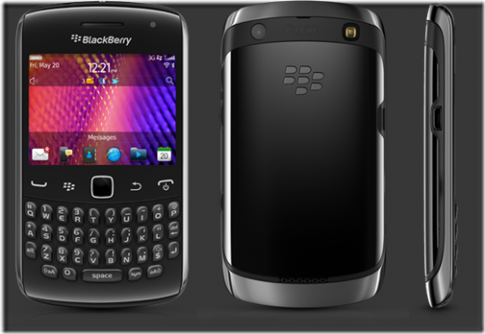BlackBerry aims for work, rest and play

Both devices are flagships, BlackBerry maintains, with one featuring a full-touchscreen and the Q10 – Q for qwerty – featuring a typical BlackBerry keyboard. The aim is for the phones to recapture the peculiar cool BlackBerry once had, but also for them to help the company compete in a very different world.
By Matt Warman, Consumer Technology Editor
It wasn’t so long ago that the BlackBerry on an executive’s hip was a mark of their high-flying status. And even as Apple’s iPhone and Google’s rival Android phones started to challenge in that market, BlackBerry’s appeal to young people rose to such a rate that this new audience was soon driving all their growth. Finally, this week the company unveiled devices that it hopes will unite both audiences.
It’s a tall order; the new Z10 and Q10 handsets use an operating system that is new to everybody, but some analysts believe that such an approach could be BlackBerry’s main hope of success.
Both devices are flagships, BlackBerry maintains, with one featuring a full-touchscreen and the Q10 – Q for qwerty – featuring a typical BlackBerry keyboard. The aim is for the phones to recapture the peculiar cool BlackBerry once had, but also for them to help the company compete in a very different world. So that means both feature extensive film and music services and screens that are suitably high-definition. Both devices, too, feature much improved web browsers so that users can surf the web with ease.
This is all in sharp contrast to existing BlackBerry devices, where many users believe web browsing is fatally flawed because of its slow speed, and where few customers use them for film and music in a comparable way to the iPhone or Android. Key to the new possibilities is the BlackBerry 10 software, rebuilt from the ground up — the transition to which gave chief executive Thorsten Heins what he has admitted was his most challenging professional year. As if to emphasise the scale of the change, BlackBerry-maker Research in Motion finally rebranded itself to BlackBerry, and jumped from an operating system called BB7 straight to BB10.
At the heart of the new OS is a system called “Peek and flow”, which puts users just a swipe of the thumb away from seeing all their social media messages, emails, appointments, tweets and updates in a single inbox, called the BlackBerry Hub.
And perhaps most importantly in terms of BlackBerry’s bid to maintain its unique appeal, the Hub can contain all your messages both from personal and work accounts. But the data and associated filing systems are kept completely separate, meaning your corporate IT manager is happy and also ensuring your private emails are not visible to your employers.
Malik Saadi, an analyst with Informa, claims it’s this that sets BlackBerry up for a shot at survival: “The BlackBerry Z10 also allows business users to separate their professional and personal profiles thanks to Balance,” he says. “This feature, plus the music and video hubs and 70,000 available applications, will enable the BlackBerry Z10 to make a good start in developed markets and potentially challenge devices such as Samsung Galaxy S III and Apple’s iPhone.”
And while it should still be emphasised that “a good start” would mean selling a few million devices, its rivals will sell hundreds of millions over the same period. The company has a huge amount of ground to make up, but some do believe that by sticking to existing audiences, survival is a real possibility.
Some argue that in an age where more consumers want their devices to work at work, it’s no longer enough for BlackBerry to emphasise primarily that it offers secure and controlled management of corporate information. So what the new operating system emphasises instead is that a single interface can provide equal, instant access to each different aspect of a modern user’s digital life.
Telecoms provider PMGC sees a bright future, therefore. “Some of the new developments are genuinely innovative,” says Jason Yeomans of PMGC, who cites Balance and the new interface. “These are advancements that users will really love.” That remains to be seen; BlackBerry seems to have done enough, however, to satisfy its fans for now. The industry is at least wondering what the next devices will deliver, rather than debating whether the company has a future.




 del.icio.us
del.icio.us Digg
Digg

Post your comment